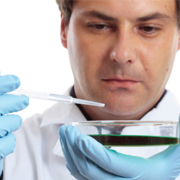All You Need to Know

There are three main types of bone marrow transplant and peripheral blood stem cell transplant (PBSCT), depending on what bone marrow condition you are suffering from, your age, your health and whether a matching donor can be found. To find out what type of transplant is best for you, you can contact us for a no-obligation, free consultation with a bone marrow transplant specialist.
3 Types of Bone Marrow Transplant
1. Autologous
Your own stem cells are stored and used to replace damaged or destroyed bone marrow; Syngeneic transplants use the donated cells of an identical twin, so is essentially the same as an autologous transplant.
Read more about Autologous Bone Marrow Transplant
2. Allogeneic
Bone marrow or stem cells from a closely matching related or unrelated donor are transplanted into the patient, allowing them to grow new healthy bone marrow.
Read more about Allogeneic Bone Marrow Transplant
3. Umbilical cord
The stem cells taken from donated umbilical cord and placental blood and frozen shortly after childbirth are transplanted to stimulate production of healthy bone marrow.
Read more about Umbilical Cord Blood Transplant
The Patient Process
 You will be given chemotherapy prior to your transplant to destroy the unhealthy bone marrow, making way for the new, transplanted cells.
You will be given chemotherapy prior to your transplant to destroy the unhealthy bone marrow, making way for the new, transplanted cells.
Depending on your age and health, this treatment will be full (Ablative or myeloablative) or partial (nonmyeloablative):
In Ablative (myeloblative) treatment we will give you a course of high-dose chemotherapy, radiation therapy or a combination of the two which will kill any remaining cancer cells, if you have a blood cancer, as well as all existing bone marrow, to prevent your own bone marrow from fighting the transplanted cells.
If it is thought that you may not be able to cope with the effects of intensive chemotherapy we may use reduced intensity (nonmyeloablative) treatment. Known as a mini transplant, patients receive lower doses of chemotherapy and radiation.
If you would like to know more about the different stem cell transplant approaches, or which one may be best for you, please contact us to speak to a medical professional.